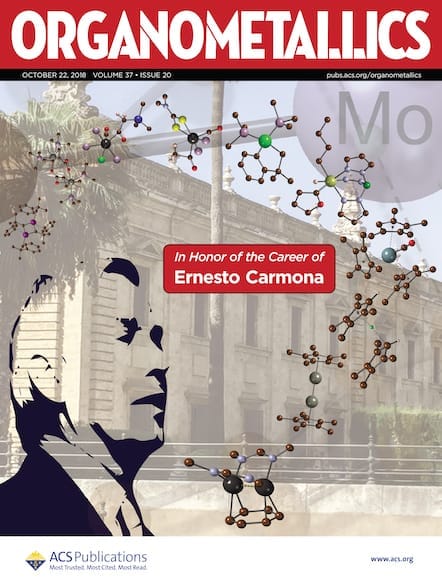Editor-in-Chief Paul J. Chirik sets the record straight on nine common misconceptions about the journal’s scope, revealing a far broader and more inclusive vision of organometallic chemistry than many researchers realize.

Organometallics Editor-in-Chief Paul J. Chirik of Princeton University and his editorial team are on a mission to make sure researchers do know the full scope of their journal. Chirik says he often finds that researchers don’t grasp the range of chemistry under the umbrella of organometallic chemistry, and, by extension, the chemistry community doesn’t realize the scope of the papers Organometallics publishes.

Read Prof. Chirik's take on nine common misconceptions about Organometallics:
- Organometallics requires submissions to feature isolable molecules that have metal-carbon bonds.
Not true! The journal publishes chemistry involving a range of metallic compounds, including alkoxides, amides, boranes, phosphides, thiolates, and others. - Organometallics does not publish papers that focus purely on organic synthesis or organic methods.
Also not true! We welcome content featuring the latest synthetic innovations. - Organometallics publishes catalysis papers only when they have X-ray crystal structures of catalysts and intermediates.
Again, not true! Organometallic chemistry has long been a driver of homogeneous catalysis: M–C bonds need not be observed directly. - Organometallics requires elemental analysis for all the new compounds reported.
Not true! Papers with definitive supporting spectroscopic data are just fine. - Catalysis papers should focus on the underlying organometallic chemistry.
Not necessarily! Organometallics welcomes papers featuring catalytic reactions with concepts germane to the field and of interest to our readership, but lacking M–C bonded intermediates. - Organometallics does not publish MOF papers.
False! In fact, MOF chemistry fits very well within our journal—for example, MOF topics we have covered include hydrocarbon separations via exposed metal centers and immobilization of organometallic catalysts. - Polymer chemistry in Organometallics is only mechanistic.
Incorrect! We are interested in the latest synthetic advances in polymer chemistry. Olefin polymerization has been one of the success stories of organometallic chemistry; we continue to welcome papers in this area, but also those that expand the frontiers in all areas of polymer chemistry. - Organometallics does not publish materials chemistry.
A rumor! Solid-state inorganic materials for electronic and optical applications, as well as metal coordination polymers, are right up our alley. - Organometallics does not publish nanoscience papers.
Another rumor! All those nanoparticles and quantum dots, how do you think they are made? Typically by organometallic chemical processing, of course. Applications of all types of nanomaterials enabled by transition-metal and main-group compounds are encouraged.
Learn more about Organometallics
See Chirik’s recent editorial about the scope of organometallic chemistry and take a look at the new Organometallics Virtual Issue “Expanding the Boundaries of Organometallic Chemistry.”
